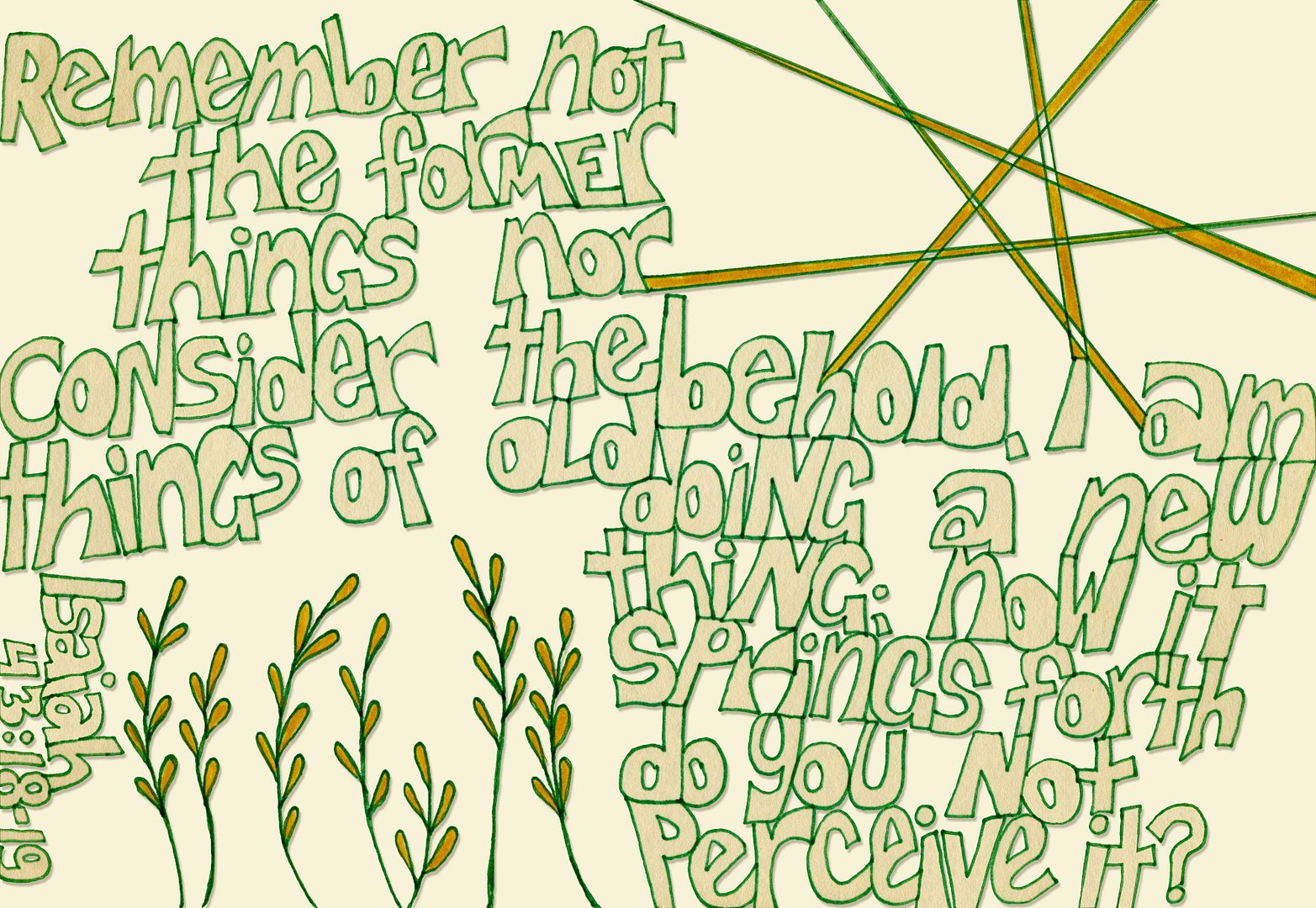Baptism again! 3
Just like so many of the Bible's witnesses: like Noah
(Genesis 7-9), Jacob
(Genesis 32:33), Moses
(Exodus), and Joshua
(Joshua 1-3), and like Jesus
(Matthew 3:16; Mark 1:9; Luke 3:21) our journey to wholeness and holiness takes us to the saving fountain of living, lively water: down to the riverside. For Christians, our Christ-walk begins with God's gracious invitation to the waters of baptism! Our Christian pilgrimage begins with our Creator's invitation to relinquish control of our destiny, Her invitation to be fully embraced, restored, and reclaimed from "sin, death and the devil," as Martin Luther paraphrases Paul in his
Small Catechism. God's invitation to us, for
us to be "the beloved," to enter freedom and forgiveness, to return from exile and to be at home with our Creator and with one another, to achieve our "chief and highest end" of living in Covenant with God and with one another, to partake of the purpose for which we were created, God's welcome and beckoning to us begins with baptism and continues forever into eternity. In our baptism God Himself makes
Shekinah, "dwelling place" with us!
(Zechariah 2:10-11; Romans 8:9-11) God is our Redeemer, dwells with us in the midst of us, making us the People of God, making all things new!
(Isaiah 42:9; 43:18-19) Our baptism is a river in the desert of the wilderness of our lives! (Isaiah 41:18:b; 43:19b)
What a prevalent image and symbol water is throughout scripture! From Genesis through Revelation water occurs and reoccurs constantly and incessantly!
(Genesis 1:2 - Revelation 22:17b) Have you ever thought about how essential water is for our ordinary, everyday physical lives and existence? What does water do that makes it so necessary? Water does a multitude of wonderful and necessary things! You probably can think of more than I'll mention right now, but for a short list water helps create and recreate; it cleans, renews, refreshes. Water forms two-thirds of each of our bodies; water covers more than three-quarters of the earth's surface.
Just as the river meant the boundary and the border between the old life and the new life for many of our biblical heroes, the living waters of baptism form the border and boundary between our old, disconnected, alienated shattered and tattered lives and our new life in Christ, our new life in the community, which is the Body of the Risen Christ, the Church of Jesus Christ. The baptismal waters bestow on us a brand-new name, the name "Christian," a name that for us is new but that name also is the name of the One who was present at creation's dawn and through whom everything was created.
(Genesis 1; Proverbs 8:22-31; Colossians 1:15-16) To us baptism gives the name of the Holy One who calls worlds into being and who sets before us the ways of life and death, naming
us "Christian."
In baptism God calls us "Christian" and we're forever transformed! Just as Jesus rose from the moving waters of his baptism, his
mikvah in the River Jordan and the Great Spirit hovered above the waters as the Father declared Jesus "Beloved Son,"
(Matthew3:17; LK 3:22) so also the Dove is on the wing at each of our baptisms, as our Beloved Creator names
us "Beloved." Since baptism changes us forever, what is this transformation? What does it mean for us, what does it mean for the community into which we're gathered, and, perhaps most of all, what does it mean for the world into which God sends us as Christians, as members of the baptized Body of Christ? At the end of his gospel, Matthew records the words of Jesus: "Go now into all the world and make disciples of all nations, baptizing them in the name of the Father, and of the Son, and of the Holy Spirit, teaching them to observe all that I have commanded you; and behold, I am with you always, even unto the end of the age."
(Matthew 28:19) Then, quoting Jesus, in the book of
Acts Luke writes: "But you shall receive Power from on High when the Holy Spirit has come upon you. And you shall be my witnesses in Jerusalem and to the ends of the earth."
(Acts 1:8) In other words, we are "Spirit-sent people," sent into the world by the command of Jesus and in the power of the Holy Spirit. In baptism we seek to discern and delineate our call to ministry, to service: we are baptized for events such as September 11; we are baptized for times of loss and grief and sorrow; we are led to the baptismal waters in order to make real and to reveal to the world the promised presence of Jesus the Christ. Above all, we are baptized in order to enter into the joy! To quote from 2
nd Isaiah again: "You shall go out in joy and be led forth in peace; the mountains and the hills shall break forth into singing, and all the trees of the field shall clap their hands!
(Isaiah 55:12)

